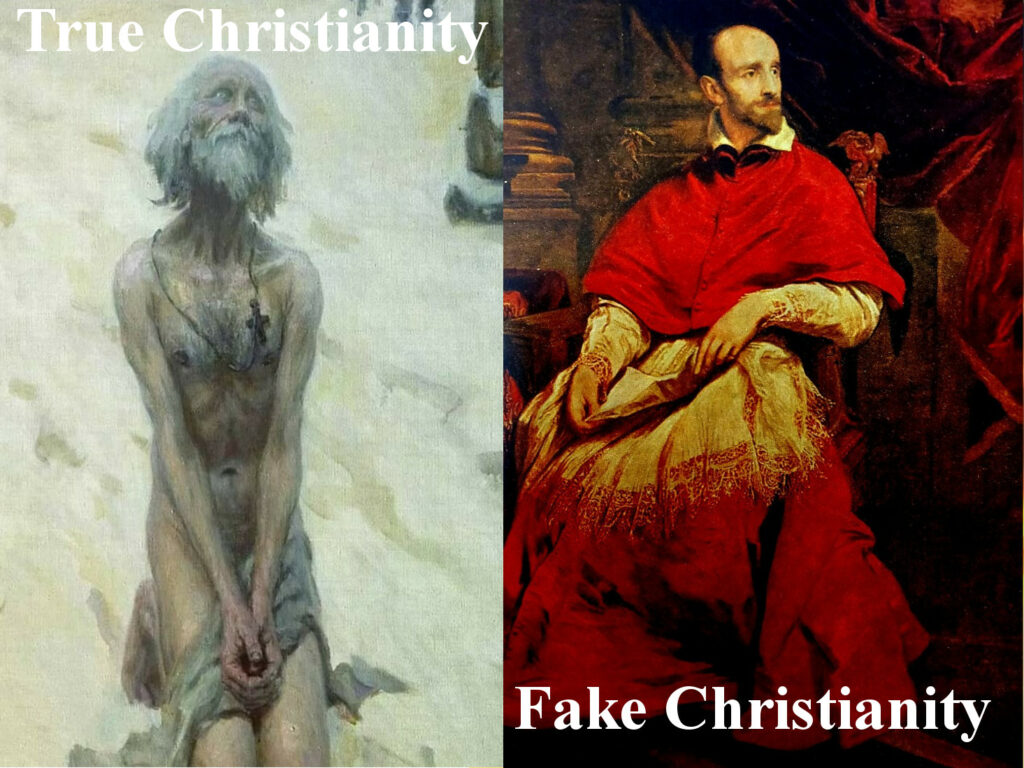
The problem with the truth is that you cannot control it. Truth cannot be portioned, privatized or nationalized. Truth belongs to everyone equally. However, if we define truth this way, because we cannot define it any other way, it is clear that an institution cannot be built around truth. It is not possible by any means.
One of the reasons for this is obviously of human corruption by its own nature. Another reason is the incredible dynamics of nature and the static state of the institutional system. The latter cannot keep up with the former. Religions just like political ideologies (secular religions), are static in nature and do not tolerate any change within their boundaries.
Only philosophy can override itself, more precisely its former results. Religions and ideologies are unable to do this because of their dogmatism, and of course their corrupt nature. They cease to exist before they can tolerate any changes within their borders.
But we humans are not gods, that is, infallible. It is inevitable that the truth of yesterday will become obsolete today. Don’t get me wrong, the truth doesn’t become obsolete, only what we previously unanimously accepted as truth.
From this follows the basis of ancient Greek wisdom, nothing and no one in this world are above criticism, and skepticism always and against everything is legitimate. However, power does not work on this principle, and when it reaches a critical point where it demands institutional organization, it leaves no room for critical thoughts, which are the only carriers of truth.
From the point of view of Christianity, it is much more complicated. Christianity was not designed to be an ideology serving power, but it inevitably became one with its institutionalization. The reason for this, no one invented Christianity. It’s not like Marx’s communist manifesto.
In other words, in its original form, Christianity was the sworn enemy of agendas and social conventions, but for truth, not for control and manipulate. We are all sinners according to this, but this also means that we are all redeemable at the same time.
However, this does not require institutional barriers, what is more, they are only obstacles in the way of individual change, because it inevitably limits the dynamism of learning and the urge of change. As result they fall in trap of dogmatism, which is not for changing. Perhaps the only exception to this is the monastic orders.
I have met many illiterate poor people who are much closer to Christ’s teachings in their love of neighbor than the most qualified theologian or religious scholar. Simon Peter, the one of twelve, for example, was an illiterate fisherman, yet he became the rock, which the church is built on. For the first Christians, the church meant spontaneously organized communities and not an institution.
Furthermore, following the Rabbinic traditions of Judaism, no one could accept material goods in exchange for teaching. Everyone had to have a manual profession to support themselves. Jesus himself was a carpenter for instance. So the clerical priesthood in the later sense could not be legitimate.
In addition, Christianity was the church of martyrs, and the greatest grace for a Christian is to undertake martyrdom for Christ in order to become worthy of him.
The institutionalization of religion, on the other hand, attracted other types of people; hypocrites, opportunistic knights of fortune, narrow-minded bureaucrats, and all those who are attracted to power, money and glamour. The decline of Christianity thus began in ancient times, and only the fall of Rome saved the religion from complete degeneracy.
It was also the good fortune of Christianity that so many of them didn’t get trapped by delusion of upcoming utopia when the Christianity became a state religion in Rome. Many people could evaluate this as the end of history, the coming beautiful new world, or the desired new world order.
After the initial euphoria, it soon became clear that even Christianity cannot reform the nature of power, and the people in power continue to persecute the righteous, only now in the name of Christ, whom they appropriated for themselves. Lucifer’s cynicism knows no bounds. Like all revolutions, it ended in disappointment, hopelessness and bitterness for the oppressed.
The brotherhood, Christian love and equality existed only at the level of slogans. The debts were not cancelled. Taxes mercilessly exploited the peasantry and industrialists. The majority of the population suffered from hyperinflation. What we call later serfdom appeared when the peasants were forced to remain on the land holding of their rulers. The powerful became more powerful and the poor became more miserable.
No one knows exactly what sin against the Holy Ghost means, but I think I have a guess; depriving man of meaning and beauty, which means meaningful life. This is all that the most authoritative institutions delivered. And if we see the protection of culture in this endeavor, we become idolaters.
Thanks for reading!

